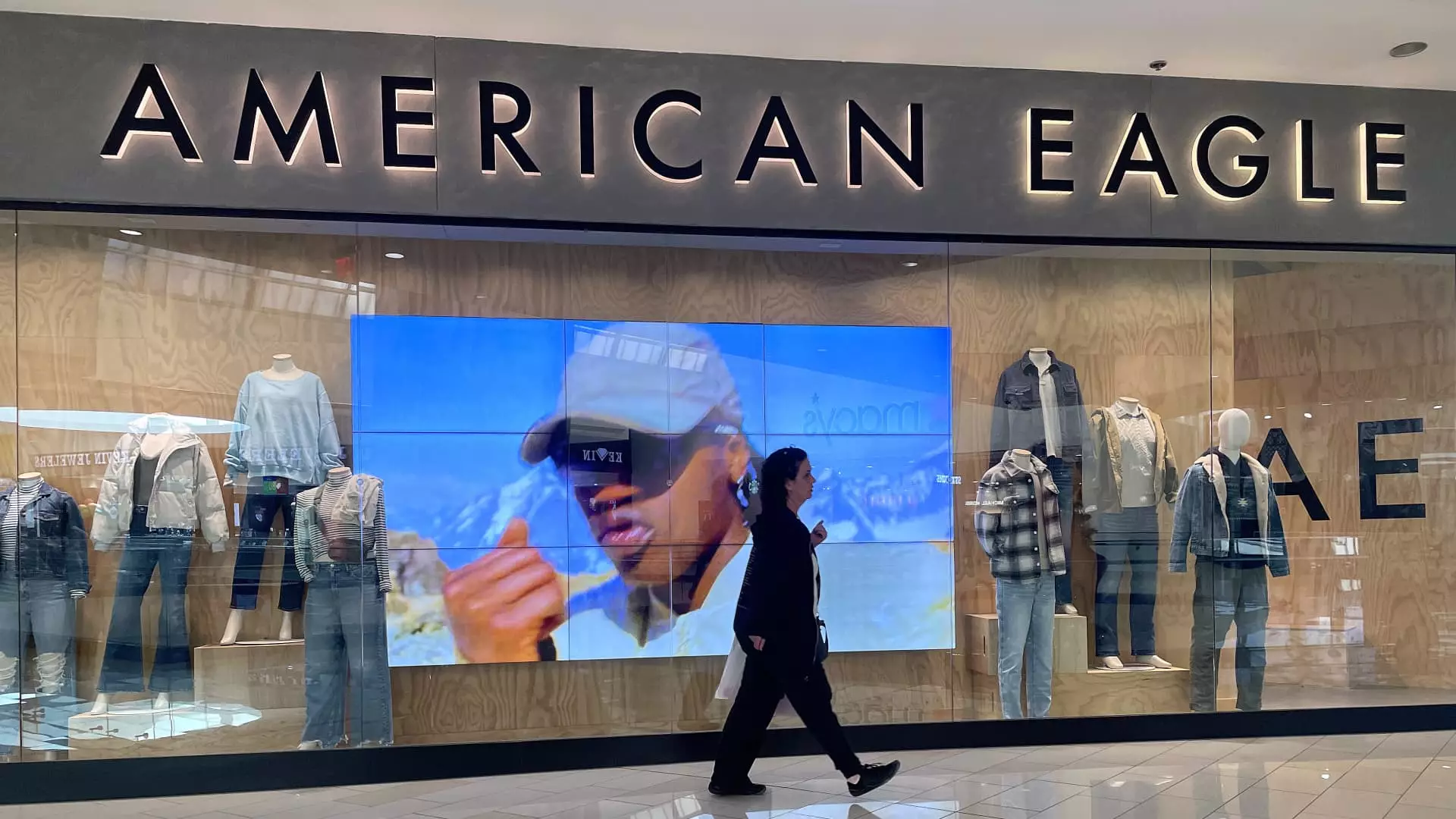In an eye-opening legal confrontation, American Eagle Outfitters has initiated a lawsuit against Amazon, claiming trademark infringement regarding its Aerie clothing line. Filed in the U.S. District Court for the Southern District of New York, the case centers around the allegation that Amazon is misusing American Eagle’s branding to attract consumers to inferior replica products instead of authentic Aerie merchandise. This lawsuit highlights the complexities and challenges brands face in the e-commerce space, particularly regarding the protection of their intellectual property.
American Eagle’s legal complaint asserts that Amazon has engaged in “flagrant, unauthorized use” of its trademarks related to the Aerie and Offline by Aerie lines. This act is alleged to mislead consumers into thinking they are buying genuine products when, in reality, they are presented with low-quality alternatives. The lawsuit notes that when shoppers enter searches for Aerie clothing on Google, they often encounter links directing them to Amazon’s platform, where they find “knock-offs” instead. The concern is not only about lost sales but also about the potential damage to the brand’s reputation and customer trust, as shoppers may associate the poor quality of these questionable products with the Aerie name.
American Eagle Outfitters, which launched Aerie in 2006 to cultivate a unique brand identity promoting body positivity and self-love, claims it intentionally refrained from selling its products on Amazon. The decision to maintain a distinct separation was strategically made to nurture its brand integrity and customer experience. However, the company argues that Amazon’s actions undermine their efforts and dilute their brand identity. American Eagle is pushing for an injunction to prevent Amazon from further usage of its trademarks, along with financial damages for the losses incurred due to this alleged infringement.
The Problem of Counterfeits in E-Commerce
This lawsuit is not an isolated incident but rather a symptom of a broader problem within the e-commerce landscape. Numerous brands have voiced concerns about counterfeit products proliferating on platforms like Amazon, where third-party sellers can list their goods with relative ease. American Eagle specifically highlights that many of the bogus Aerie products are marketed by these third-party vendors. The marketplace model, while beneficial for consumer choice, has resulted in significant challenges for brands trying to assert control over their product identities.
Amazon’s Legal Challenges with Trademark Issues
Amazon is no stranger to legal disputes over counterfeit products. The company has faced a barrage of complaints since the inception of its marketplace model, with brands like Birkenstock and Daimler AG previously bringing lawsuits regarding counterfeiting issues. In light of these persistent challenges, Amazon has taken steps to enhance its oversight and combat counterfeits on its site. Creating an internal task force devoted to addressing intellectual property concerns signifies an attempt to address the escalating problem, though the effectiveness of these measures remains debated in the business community.
The outcome of this legal battle could have far-reaching implications for both American Eagle and Amazon. For American Eagle, a favorable ruling could bolster its position in the market by affirming the legitimacy of its brand and deterring counterfeiting practices. Conversely, Amazon may face increased scrutiny and pressure to implement stronger measures protecting brands and intellectual property. This lawsuit serves as a critical reminder of the delicate balance e-commerce giants must tread between providing a marketplace for a diverse array of sellers while safeguarding the interests of established brands.
As American Eagle Outfitters confronts Amazon in this significant legal fight, the implications for e-commerce and brand protection are paramount. The case exemplifies the complexities of maintaining brand identity in a digital marketplace teeming with competition and, unfortunately, counterfeit products. The legal landscape is shifting, and both parties will remain vigilant as this lawsuit unfolds, setting the stage for the future of trademarks and consumer trust in the online retail world.


Leave a Reply